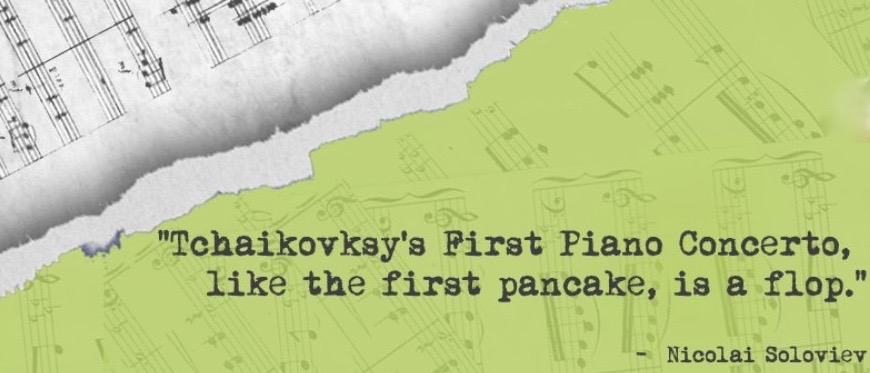Of Cow-Pies and Trolls
“It is a widely known fact—or, at least, a widely held belief—that negative criticism is more entertaining to read than enthusiastic endorsement,” wrote Peter Schickele in the intro to Lexicon of Musical Invective by Nicholas Slonimsky. I discovered reading critiques, especially negative reviews, as a form of entertainment while I was in college. I loved knowing how wrong the critics were when they prophesied a future in obscurity for classical pieces we have since embraced like Beethoven’s Symphony No. 9 and Puccini’s La Boheme. Composers joined the fun, offering opinions about their own works as well as their colleagues’. “It absolutely reeks of cow-pies, exaggerated Norwegian nationalism, and trollish self-satisfaction,” Edward Grieg wrote about his piece, “In the Hall of the Mountain King” from Peer Gynt.
Today, we are more enraptured with reviewing than ever. On July 3, an Uber driver drove me to Hartsfield-Jackson International Airport in Atlanta (rated 3.5 on Yelp) and I sat in the back of his car while he did so. We each rated the other five stars for our stellar work. Coming home from Laguardia (only 2.5 stars) last week, I skipped Uber in favor of the Q70 to the E train. The bus has a four-star rating on Yelp. It totally deserves it.
Welcome to the review culture. We review everything, often because we’re told to, or at least because we’ve been worn down by the incessant begging for reviews.
Valuing and Revaluing the Ratings
I had a day job when I was just out of college. I wrote program biographies and press releases for classical musicians on the roster of an arts management firm. I also collected reviews of performances by our artists. I was, of course, searching for glowing reviews and quotes to use in my press materials. My job taught me the value of positive reviews. It also taught me to value certain reviewers above others. I developed a sort-of review snobbery, if you will. Anything less than stellar from anyone not widely regarded in the field of classical music review failed to interest me.
I had an a-ha moment when I read William Grimes’ piece in the New York Times a few years after leaving my job. Here was a man so stingy with awarding four stars to restaurants lowering his standards upon retirement from the restaurant review game. “I have a new, nonnegotiable demand. I want solid, one-star dining in my home…. But one star is the upper limit of my aspirations: solid, respectable cuisine grandmère, executed on the fly.” In just a few sentences, he flipped the tables, revaluing one-star to a level to which he aspired.
As an untrained, amateur cook, I respect how difficult executing a one-star meal would be. It is possible, or perhaps my ego deceives me, I have prepared one or two random dishes over the years worthy of a single star. I’ve never poisoned anyone with my cooking. Or had to throw anything out. But 99.99% of what I’ve served would not merit a star. And that’s OK. My dishes have been tasty and nourishing. We can’t all be the best, even within our field, and certainly not in our hobbies.
As a trained professional musician with decades of experience, I’m not deluded into thinking every performance I deliver merits raves. I think I perform above the one-star level even on my worst days, but do I ever deliver a four-star performance? I’m not Yo-Yo Ma. How can my best compare to his best?
So, what happens when we are rated for things outside of our main area of expertise? Proust’s In Search of Lost Time ranks as the best book. Ever. Or at least according to this site. But on Amazon, it only rates a 4.5. (Funny how judgy that sounds — only 4.5.) I’ve just written my first novel, Ellen the Harpist. I’m pretty proud of it, don’t get me wrong. But how can the quality of my book, one penned by an amateur writer, be judged against truly wonderful pieces of fiction?
I’d love to say it shouldn’t be judged at all. But we’re a review culture. When people visit my book on Amazon or Goodreads, they’ll turn away pretty quickly if it doesn’t have tons of reviews. If I aspire only to lowly one-star reviews, like the bar William Grimes set for himself as a home cook, readers will run away faster than I can type “trollish self-satisfaction.” What’s a poor writer to do?
I’m grateful for each rating and review I’ve received, and I’m thrilled when readers let me know they love my novel. As for the reviewers who give me three stars (or fewer, if it comes to that), they offer valuable insights for me to use when writing my next book, provided they explain their rating with a review. And for this reason, I’m ready to embrace our review culture in hopes of becoming a better — and better known — author.

One thought on “Rate My Review”
Here is one of my favorite collections of reviews: goo.gl/ZcPto6 (Please be advised: these reviews are not for those with delicate constitutions.) Writers made the best of a bad situation by upping their review game. They wrote beautiful prose, taking us along with them on the journey of experiencing the product. Enjoy!